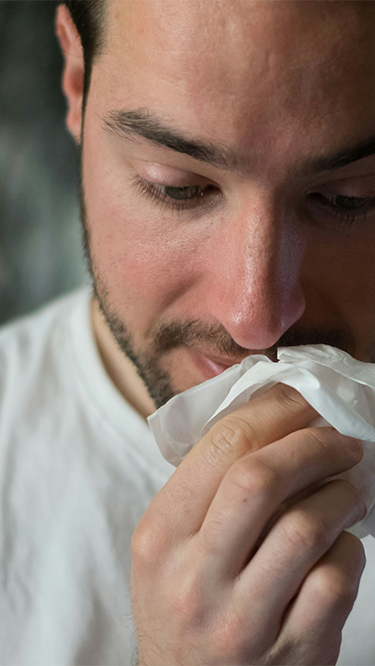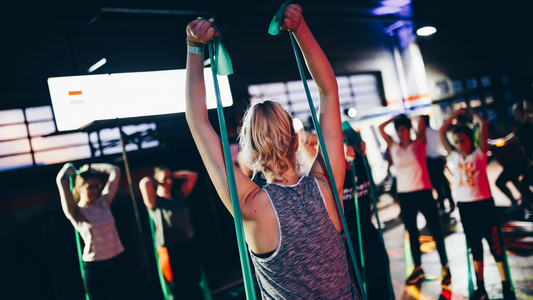

Why Does Your Nose Run When You Exercise?
It is common to get a runny nose when exercising, especially during allergy season or in cold weather. Learn more about why your nose might run while exercising and discover tips to make working out more comfortable.
Why Does My Nose Run When I Exercise?
A runny nose during exercise can have several potential causes. Rhinitis, or inflammation of the mucous membrane, affects many people. A systematic review found that between 27% and 74% of athletes have some form of rhinitis.
There are two main types of rhinitis: allergic and non-allergic. Allergic rhinitis or hay fever is a reaction to environmental irritants, such as pollen. Other factors can cause non-allergic rhinitis, which includes exercise-induced rhinitis. Some of the most common causes of inflammation other than allergic reactions include external changes in the weather or changes in your body.
Does Exercising Outdoors Cause My Nose To Run More?
You are more likely to experience allergic rhinitis if you exercise outdoors. If you do not have allergies, the expectorant effect of physical exertion could be the cause of a runny nose. Increased activity thins mucus expelled through nasal passages. This is particularly the case when it is cold outside. Exercising at low temperatures can cause an increase in nasal discharge called "skier’s nose" which affects up to half of athletes who participate in winter sports.
Increased airflow through your nasal and bronchial airways during physical activity can also cause dehydration or changes in fluid balance that lead to inflammation. Exercise raises average rates of respiration from 15 breaths per minute that provide 12 liters of air at rest to between 40 to 60 breaths per minute that provide 100 liters of air. Any of these factors could cause your nose to run during workouts.
How Can I Prevent a Runny Nose During Exercise?
If your nose runs when you exercise, consider ways to prevent this side effect of physical activity from interfering with your workouts. It can be helpful to identify potential allergens and either avoid these triggers or take medication to treat a runny nose caused by allergic rhinitis. Managing this symptom can make it easier to reach your fitness goals.
You can take other measures to manage a runny nose that is not caused by allergies. Try using a humidifier while you sleep to keep your nasal membranes moist. You can also irrigate your nasal passages with a neti pot and saline solution or use saline nasal spray before or during workouts. Covering the lower half of your face with a balaclava or neck gaiter can be a good way to manage the symptoms of skier's nose while exercising outdoors in cold weather.
Final Thoughts on Runny Noses During Exercise
If your nose runs when you exercise, you should try to identify and address the underlying cause. Finding ways to manage this symptom can help you maintain your workout routine year-round. Stay motivated by taking 3D body measurements with the ZOZOFIT app.

![zf-w-[168px] zf-h-[40px]](http://zozofit.com/cdn/shop/t/15/assets/logo-desktop.png?v=117713855448369080381753069598)




